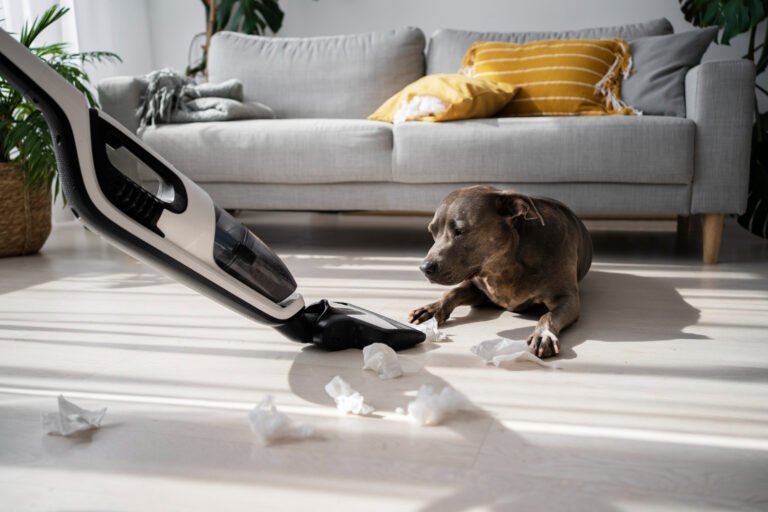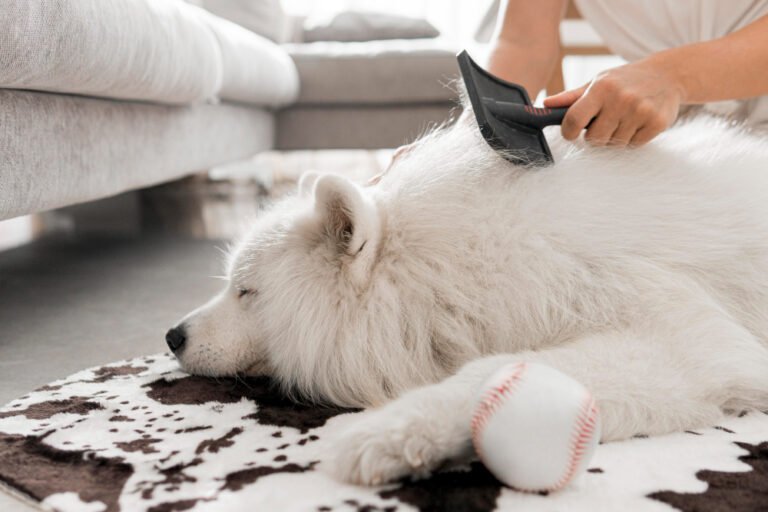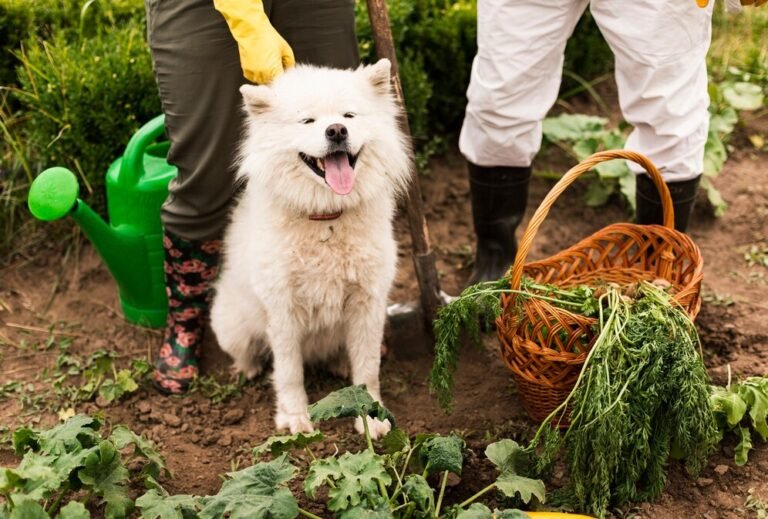Preventative Health Measures for Pets: Staying a Step Ahead check-ups.
Preventative health measures are crucial for ensuring the well-being and longevity of our beloved pets. From regular check-ups to proper nutrition and exercise, there are several steps we can take to stay ahead of any potential health issues. In this article, we will explore the importance of preventative health measures for pets and provide key takeaways for each category, including regular veterinary check-ups, vaccinations, parasite prevention, dental care, nutrition, exercise and mental stimulation, grooming and hygiene.
Key Takeaways
- Regular veterinary check-ups are essential for early detection and prevention of health issues in pets.
- Vaccinations protect pets from various diseases and should be kept up to date.
- Parasite prevention measures, such as regular flea and tick treatments, are crucial for keeping pets safe.
- Proper dental care, including regular brushing and professional cleanings, helps maintain your pet’s oral health.
- Choosing the right pet food, providing a balanced diet, and controlling portion sizes are important for your pet’s overall nutrition.
The Importance of Preventative Health Measures for Pets
Regular Veterinary Check-ups
Regular veterinary check-ups are essential for maintaining your pet’s health and preventing potential issues. During these check-ups, your veterinarian will thoroughly examine your pet, assess their overall condition, and address any concerns you may have. These check-ups allow your veterinarian to detect and treat any health problems early on, increasing the chances of successful treatment and improving your pet’s quality of life. Additionally, your veterinarian may recommend wellness checks for your pet, which can include blood tests, vaccinations, and parasite prevention measures. By staying proactive and scheduling regular check-ups, you can ensure that your pet receives the necessary care and attention they need to stay healthy and happy.
Vaccinations: Protecting Your Pet from Diseases
Preventing an ear infection from happening in the first place is always going to be cheaper, less stressful, and less painful than curing an ear infection. By incorporating preventive measures and regular checks, we can minimize the chances of our dogs contracting ear infections. Vets can provide nuanced and personalized guidance on routine ear care, recommend products for cleaning, and give tips on preventing future infections. With a better understanding of treatment options, the next step is to focus on long-term care and prevention to keep our pets healthy and happy.
If your dog does develop an ear infection, prompt treatment is essential. The vet will examine the ears and determine the underlying cause of the infection. Depending on the severity and type of infection, treatment may involve cleaning the ears, administering medication, or a combination of both. Remember, early detection and prevention are key in maintaining your dog’s ear health. Stay vigilant and prioritize your furry friend’s well-being.
Parasite Prevention: Keeping Your Pet Safe
When it comes to keeping your pet safe and healthy, parasite prevention is crucial. Parasites such as fleas, ticks, and worms can cause a range of health issues for your furry friend, including skin irritation, anemia, and even more serious conditions. By implementing preventative measures, you can improve your pet’s overall well-being and reduce the risk of these pesky parasites. Here are some important steps you can take:
- Regularly administer flea and tick prevention treatments recommended by your veterinarian.
- Keep your pet’s living environment clean and free from pests.
- Practice good hygiene by regularly grooming your pet and checking for any signs of parasites.
Remember, prevention is always better than treatment when it comes to parasites. By staying proactive and taking these preventative measures, you can ensure that your pet stays happy and healthy.
Dental Care: Maintaining Your Pet’s Oral Health
Proper dental care is essential for your pet’s overall health and well-being. Regular brushing and professional cleanings can help prevent dental issues such as plaque buildup, gum disease, and tooth decay. Additionally, providing dental chews and toys can help keep your pet’s teeth clean and strong. It’s important to consult with your veterinarian for specific dental care recommendations for your pet’s breed and age.
Nutrition: Feeding Your Pet for Optimal Health

Choosing the Right Pet Food
When it comes to your pet’s nutrition, it’s important to choose the right pet food. A balanced diet is essential for their overall health and well-being. Look for pet foods that are specifically formulated to meet their nutritional needs. Consider factors such as their age, breed, and any specific dietary requirements they may have. Portion control is also crucial to prevent obesity in pets. Follow the feeding guidelines provided by the manufacturer and consult with your veterinarian if you have any concerns.
To help you make an informed decision, here are some key points to consider:
- Read the ingredient list: Look for high-quality protein sources, whole grains, and a variety of fruits and vegetables.
- Avoid artificial additives: Opt for pet foods that are free from artificial colors, flavors, and preservatives.
- Consider special dietary needs: If your pet has specific dietary needs, such as food allergies or sensitivities, look for pet foods that cater to those requirements.
Remember, embrace preventative measures by providing your pet with a nutritious diet to support their overall health and well-being.
Balanced Diet: Meeting Your Pet’s Nutritional Needs
A balanced diet is essential for meeting your pet’s nutritional needs and ensuring their overall health and well-being. Proper nutrition plays a crucial role in supporting their immune system, maintaining a healthy weight, and preventing diet-related health issues. As a responsible pet owner, it’s important to understand the dietary requirements of your pet and provide them with high-quality pet food that meets their specific needs.
To ensure a balanced diet, consider the following:
- Protein: Pets require a sufficient amount of protein for muscle development and repair. Look for pet foods that list a high-quality source of protein, such as chicken or fish, as the main ingredient.
- Carbohydrates: While pets don’t need as many carbohydrates as humans do, they still require a small amount for energy. Opt for pet foods that contain whole grains or vegetables as a source of carbohydrates.
- Fats: Healthy fats are essential for your pet’s coat and skin health. Look for pet foods that contain omega-3 fatty acids from sources like fish oil.
Remember, it’s important to consult with your veterinarian to determine the specific dietary needs of your pet, especially if they have any underlying health conditions or allergies. They can provide personalized recommendations and help you create a customized feeding plan for your furry friend.
Portion Control: Preventing Obesity in Pets
Proper portion control is essential for maintaining your pet’s healthy weight and preventing obesity. Overfeeding can lead to excessive weight gain, which can put strain on your pet’s joints and organs. It’s important to follow the recommended feeding guidelines provided by your veterinarian and adjust the portions based on your pet’s age, size, and activity level. Monitoring your pet’s body condition score can also help you determine if they are at a healthy weight. If you’re unsure about the appropriate portion size for your pet, consult with your veterinarian for personalized recommendations.
Special Dietary Considerations for Pets
When it comes to your pet’s diet, there are a few special considerations to keep in mind. Preventive measures for pet health should be a top priority, and this includes choosing the right pet food and ensuring a balanced diet. It’s important to meet your pet’s nutritional needs to support their overall health and well-being. Additionally, portion control is crucial in preventing obesity in pets. Special dietary considerations may also be necessary for pets with specific health conditions or allergies. Your veterinarian can provide guidance on the best diet for your pet’s unique needs.
- Implement a table for presenting structured, quantitative data. Ensure it’s succinct and formatted correctly in Markdown.
- Use a bulleted or numbered list for less structured content, like steps, qualitative points, or a series of related items.
If you have any concerns about your pet’s diet or nutritional needs, don’t hesitate to consult with your veterinarian. They can provide personalized recommendations and ensure that your pet is receiving the proper nutrients for optimal health.
Exercise and Mental Stimulation: Keeping Your Pet Active
Physical Exercise: Keeping Your Pet Fit
Regular physical exercise is essential for maintaining your pet’s overall health and well-being. Engaging in regular exercise helps to keep your pet’s weight in check, promotes cardiovascular health, and strengthens their muscles and bones. It also provides mental stimulation and helps prevent behavioral issues caused by boredom.
To ensure that your pet gets enough exercise, incorporate activities that they enjoy into their daily routine. This can include going for walks, playing fetch, or engaging in interactive play sessions. Tailor the exercise routine to your pet’s age, breed, and physical capabilities.
Remember to start slow and gradually increase the intensity and duration of the exercise. Monitor your pet during exercise to ensure they don’t overexert themselves. If you have any concerns about your pet’s exercise needs or limitations, consult with your veterinarian for guidance.
In addition to regular exercise, providing your pet with a balanced diet and proper nutrition is crucial for their overall fitness. Consult with your veterinarian to determine the appropriate diet for your pet’s specific needs and ensure they are getting all the necessary nutrients.
By prioritizing physical exercise and proper nutrition, you can help your pet maintain a healthy weight, prevent obesity-related health issues, and promote their overall well-being.
Mental Stimulation: Preventing Boredom and Behavioral Issues
Keeping your pet mentally stimulated is essential for preventing boredom and behavioral issues. Dogs are intelligent creatures that thrive on mental challenges, and providing them with stimulating activities can keep their minds sharp and engaged. Here are some ways you can provide mental stimulation for your pet:
- Puzzle toys: These toys require your pet to solve a puzzle or find hidden treats, stimulating their problem-solving skills.
- Training sessions: Regular training sessions not only teach your pet new commands but also provide mental exercise and strengthen the bond between you and your pet.
- Interactive toys: Toys that require your pet to interact with them, such as treat-dispensing toys or puzzle feeders, can keep them entertained and mentally engaged.
Remember, mental stimulation is just as important as physical exercise for your pet’s overall well-being. By keeping their minds active and engaged, you can help prevent boredom and behavioral issues.
Enrichment Activities for Pets
Enrichment activities are an essential part of keeping your pet happy and healthy. They provide mental stimulation, prevent boredom, and help prevent behavioral issues. Self-cleaning is one such activity that can keep your pet entertained and engaged. It involves providing your pet with toys or puzzles that they can interact with and manipulate on their own. This not only keeps them physically active but also stimulates their problem-solving skills. By encouraging self-cleaning, you are giving your pet a sense of independence and control over their environment.
To incorporate self-cleaning into your pet’s routine, you can provide them with interactive toys that dispense treats or hide treats inside puzzle toys. This will encourage them to engage in self-cleaning behavior while also rewarding them for their efforts. Additionally, you can set up a designated play area for your pet where they can explore and interact with different toys and objects. This will provide them with a stimulating environment and encourage self-cleaning activities.
Remember, self-cleaning is just one of many enrichment activities you can incorporate into your pet’s routine. It’s important to provide a variety of activities to keep them mentally and physically stimulated. By doing so, you’ll be ensuring that your pet stays happy, healthy, and engaged.
Socialization: Building Healthy Relationships
Socialization is a crucial aspect of your pet’s development, helping them build healthy relationships with other animals and humans. It allows them to learn proper behavior, communication skills, and how to navigate different social situations. Here are some key points to keep in mind when it comes to socializing your pet:
- Start early: Introduce your pet to various environments, people, and animals from a young age to help them become comfortable and confident.
- Positive reinforcement: Reward your pet for good behavior during social interactions to reinforce positive associations.
- Gradual exposure: Gradually expose your pet to new experiences and environments, allowing them to adjust at their own pace.
- Supervision: Always supervise your pet during socialization to ensure their safety and intervene if necessary.
Remember, socialization is an ongoing process that requires patience and consistency. By providing your pet with positive social experiences, you are helping them develop into well-rounded and happy companions.
Grooming and Hygiene: Maintaining Your Pet’s Cleanliness
Regular Bathing and Brushing
Regular bathing and brushing are essential for maintaining your pet’s cleanliness and overall health. Bathing helps to remove dirt, debris, and odors from your pet’s coat, while brushing helps to remove loose hair and prevent matting. It is recommended to bathe your pet every 4-6 weeks, or as needed, using a pet-specific shampoo that is gentle on their skin. When brushing your pet, choose a brush that is appropriate for their coat type and use gentle, long strokes to remove tangles and knots. Regular grooming not only keeps your pet looking their best, but it also allows you to check for any skin issues or abnormalities that may require veterinary attention.
To make bath time more enjoyable for your pet, ensure the water temperature is comfortable and use positive reinforcement techniques. Additionally, be cautious when cleaning your pet’s ears during baths to prevent water from entering the ear canal, as this can lead to ear infections. If your pet has a history of ear infections or is prone to them, consult with your veterinarian for guidance on ear cleaning products and techniques.
In summary, regular bathing and brushing are important components of your pet’s hygiene routine. They help to keep your pet clean, prevent skin issues, and allow you to monitor their overall health. Remember to use pet-specific products and techniques that are safe and effective for your furry friend.
Nail Trimming: Preventing Overgrowth and Injuries
Nail trimming is an essential part of your pet’s grooming routine. Regularly trimming your pet’s nails helps prevent overgrowth and potential injuries. Avoid loneliness with your pet by engaging in this simple yet important task. Here are some tips to ensure effective nail trimming:
- Use proper nail clippers designed for pets.
- Be cautious not to cut the quick, which is the sensitive part of the nail.
- Gradually introduce your pet to nail trimming to make them more comfortable.
Remember, maintaining your pet’s nails at an appropriate length is crucial for their overall health and well-being. By following these tips, you can keep your pet’s nails in optimal condition and prevent any discomfort or injuries.
Ear and Eye Care: Preventing Infections
Measures: Vets can provide nuanced and personalized guidance on routine ear care, recommend products for cleaning, and give tips on preventing future infections. With a better understanding of treatment options, the next step is to focus on long-term care and prevention to keep our pets healthy and happy. Prevention Preventing an ear infection from happening in the first place is always going to be cheaper, less stressful, and less painful than curing an ear infection. By incorporating preventive measures and regular checks, we can minimize the chances of our dogs contracting ear infections, ensuring their long-term well-being and comfort. Regular grooming, ear cleaning, and maintenance are vital. Use professional dog ear cleaning products for effective pH ranges and avoid substances like alcohol or hydrogen peroxide when the ears are visibly red and raw as they may sting. The frequency of cleaning usually decreases over time, but it’s essential for prevention. If your dog swims frequently, using drying agents and ensuring water
Anal Gland Expression: Avoiding Discomfort
Regular anal gland expression is an important aspect of maintaining your pet’s comfort and overall health. Anal glands are small sacs located on either side of your pet’s anus that produce a smelly, oily substance. These glands normally empty themselves during bowel movements, but sometimes they can become impacted or infected, causing discomfort for your pet. If left untreated, impacted anal glands can lead to more serious issues such as abscesses or ruptures. To prevent this, it’s crucial to recognize the signs of anal gland problems and seek veterinary assistance when needed.
Grooming and hygiene are essential aspects of pet care. Keeping your pet clean not only improves their physical health but also enhances their emotional well-being. At Whisker Wellbeing, we understand the importance of holistic and natural care for pets. That’s why we offer a wide range of products, including CBD, hemp, and other natural options, all aimed at improving the overall quality of life for your furry friends. Whether you have a cat or a dog, our products are designed to promote their cleanliness and well-being. Visit our website today to explore our collection and give your pet the care they deserve.
Conclusion
In conclusion, proactive preventative health measures are crucial for ensuring the well-being and longevity of our beloved pets. By incorporating routine vet examinations, a well-rounded diet, regular activity, diligent dental hygiene practices, and vigilant heartworm prevention measures, we can effectively safeguard our pets’ overall health and prevent the onset of various health issues. Additionally, early detection and prevention play a vital role in maintaining our pets’ ear health, minimizing the chances of ear infections and ensuring their long-term comfort. Remember, a nurturing home environment and regular care are essential for promoting the heart health of our dogs. With the guidance of trusted veterinary professionals, we can provide our pets with a longer, happier, and healthier life. Let’s prioritize the well-being of our furry friends and give them the love and care they deserve.
Frequently Asked Questions
Why are regular veterinary check-ups important for pets?
Regular veterinary check-ups are important for pets because they allow the veterinarian to monitor the pet’s overall health, detect any potential health issues early on, and provide necessary vaccinations and preventive treatments.
What vaccinations are necessary to protect pets from diseases?
The necessary vaccinations for pets may vary depending on factors such as the pet’s age, lifestyle, and geographic location. Common vaccinations include those for rabies, distemper, parvovirus, and kennel cough.
How can I prevent parasites from affecting my pet?
To prevent parasites from affecting your pet, it is important to use regular preventive treatments such as flea and tick medications, heartworm preventives, and regular deworming. Additionally, keeping your pet’s environment clean and practicing good hygiene can help reduce the risk of parasitic infestations.
Why is dental care important for my pet?
Dental care is important for pets because it helps maintain their oral health, prevents dental diseases such as periodontal disease and tooth decay, and can contribute to their overall well-being. Regular brushing, dental check-ups, and professional cleanings may be necessary for optimal dental care.
How do I choose the right pet food for my pet?
When choosing pet food, it is important to consider factors such as the pet’s age, breed, size, and any specific dietary needs or health concerns. Look for high-quality ingredients, balanced nutrition, and consult with your veterinarian for recommendations.
How can I keep my pet fit and mentally stimulated?
To keep your pet fit and mentally stimulated, provide regular physical exercise such as walks, playtime, and interactive toys. Engage in training sessions, puzzle toys, and enrichment activities that challenge their mind and provide mental stimulation. Socialization with other pets and humans is also important for their well-being.







